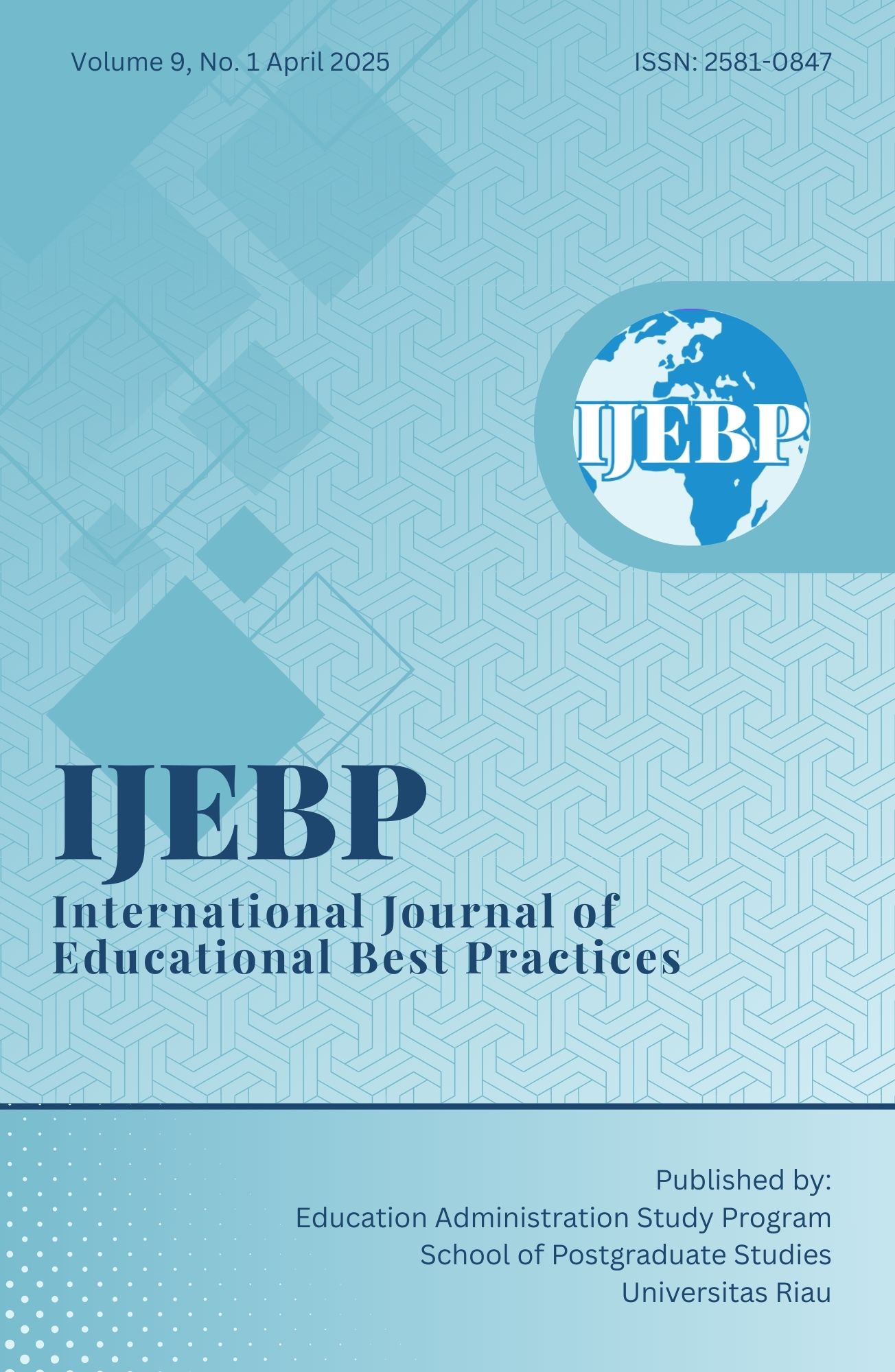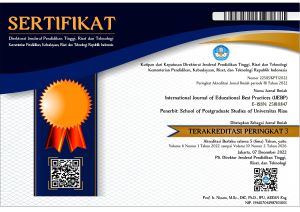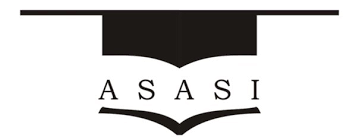USING JIGSAW TO ENHANCE COMPREHENSION OF MARKETING CONCEPTS AMONG BUSINESS EDUCATION STUDENTS
Keywords:
Jigsaw strategy, Marketing, Business education, Problem-solving skillsAbstract
This empirical study explores the challenges encountered by second-year students in learning marketing within the context of business education, and examines how the jigsaw approach may enhance their learning experience. The research is underpinned by Lev Vygotsky’s theory of social constructivism (1968), which posits that student development is socially situated and that knowledge is co-constructed through interaction. Adopting a qualitative methodology within a constructivist paradigm, the study involved twelve student participants. Data were collected through semi-structured interviews and analysed using a thematic approach. Participants responded to two key questions: What challenges do business education students face in learning marketing? And how can the jigsaw strategy support improvements in marketing education? The findings reveal that teaching and learning marketing remains a significant challenge. Based on these findings, the study advocates for the integration of the jigsaw technique to mitigate student underperformance. Employing the jigsaw method as a cooperative learning strategy has the potential to enhance both instructional effectiveness and students’ academic achievement in marketing.
References
Alao, O. E., Onah, N. F., & Alao, P. O. (2020). Instructional strategies and students’ entrepreneurial empowerment through Marketing Trade subject in Lagos State, Nigeria. Asian Journal of Assessment in Teaching and Learning, 10(2), 62-71. https://www.researchgate.net/publication/348501587
Abdel-Mordy, M. A., Sabry, S. S., & Abdelrazek, A. (2022). Effect of cooperative jigsaw learning strategy on community nursing students' attitude and achievement. International Egyptian Journal of Nursing Sciences and Research, 2(2), 487-500. doi: 10.21608/ejnsr.2022.212558
Abylay, I. (2024). Lack of technical equipment in Kazakhstani schools and its impact on academic performance. Eurasian Science Review, 2(2), 150–154. https://doi.org/10.63034/esr-41
Adeoye, M. A., & Prastikawati, E. F. (2024). Simplifying the puzzle: How computational thinking and abstraction can help teachers conquer classroom complexity. International Journal of Research in Education, 4(1), 140-148. https://www.researchgate.net/publication/377441863_Simplifying_the_Puzzle_How_Computational_Thinking_and_Abstraction_can_Help_Teachers_Conquer_Classroom_Complexity
Ajani, O. A. (2024). Enhancing problem-solving skills among pre-service teachers in higher education: A systematic literature review. Journal of Pedagogical Sociology and Psychology, 6(2), 98-113. https://doi.org/10.33902/jpsp.202424002
Akpan, V. I., Igwe, U. A., Mpamah, I. B. I., & Okoro, C. O. (2020). Social constructivism: Implications on teaching and learning. British Journal of Education, 8(8), 49-56. https://www.eajournals.org/wp-content/uploads/Social-Constructivism.pdf
Almoslamani, Y. (2022). The impact of learning strategies on the academic achievement of university students in Saudi Arabia. Learning and Teaching in Higher Education: Gulf Perspectives, 18(1), 4-18. https://www.emerald.com/insight/2077-5504.htm
Amelia, N., Istanto, W., Edi-Krause, S., Anggoro, S. D., & Suemith, M. (2023). The implementation of jigsaw methods in enhancing English language comprehension among health polytechnic students. Anglophile Journal, 3(2), 87-99. https://www.researchgate.net/publication/374481173
Amjad, T., Abdul Rani, S. H., & Sa'atar, S. (2020). Entrepreneurship development and pedagogical gaps in entrepreneurial marketing education. The International Journal of Management Education, 18(2), Article 100379. https://doi.org/10.1016/j.ijme.2020.100379
Anggrainy, R., Tresdiawan, R. A., Mubarak, I., Sutia, I., & Lubi, A. (2022). Application of jigsaw-type cooperative learning model to improve learning outcomes. Journal of Mechanical Engineering Education, 10(2). https://doi.org/10.17509/jmee.v10i2.52725
Aronson, E., Blaney, N., Stephin, C., Sikes, J., & Snapp, M. (1978). The jigsaw classroom. Beverly Hills.
Bean, J. C., & Melzer, D. (2021). Engaging ideas: The professor's guide to integrating writing, critical thinking, and active learning in the classroom (3rd ed.). Jossey-Bass. https://www.researchgate.net/publication/358137333_Engaging_Ideas_The_Professor's_Guide_to_Integrating_Writing_Critical_Thinking_and_Active_Learning_in_the_Classroom
Biwer, F., oude Egbrink, M. G. A., Aalten, P., & de Bruin, A. B. H. (2020). Fostering effective learning strategies in higher education—A mixed-methods study. Journal of Applied Research in Memory and Cognition, 9(2), 186–203. https://doi.org/10.1016/j.jarmac.2020.03.004
Brau, B. (2020). Constructivism. In S. Kimmons & S. Caskurlu (Eds.), The students’ guide to learning design and research. EdTech Books. https://edtechbooks.org/studentguide/constructivism
Bryant, M. M., Riley, J., Turner-Henderson, T., & Purnell, D. (2024). Ready, set, go! Deploying the social listening stoplight activity to teach marketing analytics using qualitative techniques. Journal of Marketing Analytics, 12(2), 169–181. https://doi.org/10.1057/s41270-024-00292-4
Calma, A., & Cotronei-Baird, V. S. (2021). Assessing critical thinking in business education: Key issues and practical solutions. The International Journal of Management Education, 19(3), Article 100531. https://doi.org/10.1016/j.ijme.2021.100531
Cochon Drouet, O., Margas, N., Cece, V., & Lentillon-Kaestner, V. (2024). The effects of the jigsaw method on students’ physical activity in physical education: The role of student sex and habituation. European Physical Education Review, 30(1), 85–104. https://doi.org/10.1177/1356336X231184347
Costouros, T. (2020). Jigsaw learning versus traditional lectures: Impact on student grades and learning experience. Teaching & Learning Inquiry, 8(1), 154–172. https://doi.org/10.20343/teachlearninqu.8.1.11
Crick, J. M., & Crick, D. (2021). Teaching marketing to non-marketing majors: Tools to enhance their engagement and academic performance. Education & Training, 63(6), 833–851. https://doi.org/10.1108/ET-02-2021-0038
Daniel, K., Msambwa, M. M., Antony, F., & Wan, X. (2024). Motivate students for better academic achievement: A systematic review of blended innovative teaching and its impact on learning. Computer Applications in Engineering Education, 32(4), e22733. https://doi.org/10.1002/cae.22733
Delta, & Nwaham, C. O. (2023). The impact of educational resources on the quality of educational service delivery in universities in Nigeria. Journal of Contemporary Studies in Education, 1(1), 1–19. https://www.researchgate.net/publication/373216217
Dingus, R., Black, H. G., & Flink, N. A. (2024). Analytics for all marketing majors: Sparking interest in the uninterested. Journal of Marketing Analytics, 12(2), 126–141. https://doi.org/10.1057/s41270-023-00283-x
Ferrell, O. C., & Ferrell, L. (2020). Technology challenges and opportunities facing marketing education. Marketing Education Review, 30(1), 3–14. https://doi.org/10.1080/10528008.2020.1718510
Fouché, I. (2024). Pre-service teacher investment through dialogic action learning. Reading & Writing, 15(1), Article a452. https://doi.org/10.4102/rw.v15i1.452
Farrag, R., Ahmed, S., & Gouda Nasr, E. S. (2022). Jigsaw cooperative learning strategy: An effective tool for improving maternity nursing students’ achievement, retention, and self-confidence. Egyptian Journal of Health Care, 13(1), 1920–1933. https://doi.org/10.21608/ejhc.2022.249394
Franklin, E. I., Iwu, C. G., & Dubihlela, J. (2022). Students' views regarding the barriers to learning critical thinking. International Journal of Research in Business and Social Science, 11(4), 355–364. https://doi.org/10.20525/ijrbs.v11i4.1797
Goolsarran, N., Hamo, C. E., & Lu, W. H. (2020). Using the jigsaw technique to teach patient safety. Medical Education Online, 25(1), Article 1710325. https://doi.org/10.1080/10872981.2019.1710325
Gyepi-Garbrah, T. F., Preko, A. K., Andoh, J. A., & Agbemabiese, G. C. (2022). Students' characteristics and academic performance of marketing majors: Evidence from Ghana. Marketing Education Review, 32(1), 1–15. https://doi.org/10.1080/10528008.2022.2047074
Hanapi, N. M., & Kamal, M. M. M. (2024). Jigsaw classroom: A process of cooperative learning and discussion. Semarak International Journal of Innovation in Learning and Education, 1(1), 24–31. https://doi.org/10.37934/sijile.1.1.2431
Jainal, N. H., & Shahrill, M. (2021). Incorporating jigsaw strategy to support students' learning through action research. International Journal on Social and Education Sciences, 3(2), 252–266. https://doi.org/10.46328/ijonses.75
Javed, F. (2024). Transformative learning strategies for effective teaching and learning in digitized higher education. Jurnal Pendidikan, 25(1), 14–19. https://doi.org/10.33830/jp.v25i1.7330.2024
Kalu-Uche, N. (2018). Jigsaw learning teams, teacher-led discussion, and secondary school students' academic performance in biology. Journal of Nigerian Academy of Education, 14(1), 13–22. https://www.researchgate.net/publication/351613099
Kim, Y. (2019). Developing a work-ready social media marketing analytics course: A model to cultivate data-driven and multiperspective strategy development skills. Decision Sciences Journal of Innovative Education, 17(2), 163–188. https://doi.org/10.1111/dsji.12175
Kibirige, I., & Lehong, M. J. (2022). A comparative study of the Jigsaw and Chalk-and-Talk methods on grade 12 learners' achievements in reaction rates in South Africa. Cypriot Journal of Educational Sciences, 17(11), 4230–4245. https://doi.org/10.18844/cjes.v17i11.8448
Laverie, D. A., Humphrey, W., Manis, K. T., & Freberg, K. (2020). The digital era has changed marketing: A guide to using industry certifications and exploration of student perceptions of effectiveness. Marketing Education Review, 30(1), 57–80. https://doi.org/10.1080/10528008.2020.1719279
Makhoba, B. P. (2024). Teaching large classes in historically disadvantaged universities: Empirical review. Multicultural Education, 10(2), 31. https://doi.org/10.5281/zenodo.10723482
Matope, J. (2021). Making wine without grapes: The case for quality teaching with limited resources. Educational Research for Social Change, 10(2), 33-46. https://dx.doi.org/10.17159/2221-4070/2021/v10i2a3
Mlambo, V. H., Masuku, M. M., & Ndebele, N. C. (2022). Students' perceptions on the availability of prescribed study material under the new NSFAS book allowance funding model. The International Journal of Learning in Higher Education, 30(1), 173–191. https://doi.org/10.18848/2327-7955/CGP/v30i01/173-191
Naidoo, D., & Mabaso, M. (2023). Social constructivist pedagogy in business studies classrooms: Teachers' experiences and practices. Perspectives in Education, 41(2), 62–76. https://doi.org/10.38140/pie.v41i2.7151
Nyagope, T. S. (2024). Massification at higher education institutions: Challenges associated with teaching large classes and how it impacts the quality of teaching and learning in South Africa. International Journal of Environmental, Sustainability, and Social Science, 5(1), 1–14. https://doi.org/10.38142/ijesss.v5i1.852
Okeke, A. U., & Dikeocha, L. U. (2023). Effect of jigsaw teaching approach on students’ academic achievement and retention in business education practicum in colleges of education, South East, Nigeria. African Journal of Educational Management, Teaching and Entrepreneurship Studies, 10(1), 183–192. https://ajemates.org/index.php/ajemates/article/view/339
Okolie, U. C., Igwe, P. A., Mong, I. K., Nwosu, H. E., Kanu, C., & Ojemuyide, C. C. (2021). Enhancing students’ critical thinking skills through engagement with innovative pedagogical practices in Global South. Higher Education Research & Development, 41(4), 1184–1198. https://doi.org/10.1080/07294360.2021.1896482
Omar, A. A. A., AlQarni, A. M., Alzahrani, M. A., & Yahya, I. E. R. (2023). The effect of using jigsaw strategy on cognitive achievement, and the attitude towards using peer teaching. Migration Letters, 20(S11), 136–151. https://doi.org/10.59670/ml.v20iS11.5590
Papageorgiou, E. (2022). Self-regulated learning strategies and academic performance of accounting students at a South African university. South African Journal of Higher Education, 36(1), 251–278. https://doi.org/10.20853/36-1-4546
Rea, S. D., Wang, L., Muenks, K., & Yan, V. X. (2022). Students can (mostly) recognize effective learning, so why do they not do it? Journal of Intelligence, 10(4), 127. https://doi.org/10.3390/jintelligence10040127
Rill, J. (2019). The textbook decision: Purchasing options affecting students in the classroom (Doctoral dissertation). University of South Florida. https://digitalcommons.usf.edu/etd/7910/
Rinella, H. L., & Putnam, A. L. (2022). The study strategies of small liberal arts college students before and after COVID-19. PLOS ONE, 17(12), e0278666. https://doi.org/10.1371/journal.pone.0278666
Rokhmah, N. F., & Subroto, W. T. (2019). Application of cooperative learning jigsaw type to improve learning outcomes of economic introduction and business. International Journal of Educational Research Review, 4(2), 238–244. https://www.researchgate.net/publication/332122281_Application_of_Cooperative_Learning_Jigsaw_Type_to_Improve_Learning_Outcomes_of_Economic_Introduction_and_Business
Saputra, M. D., Joyoatmojo, S., Wardani, D. K., & Sangka, K. B. (2019). Developing critical-thinking skills through the collaboration of jigsaw model with problem-based learning model. International Journal of Instruction, 12(1), 1077–1094. https://doi.org/10.29333/iji.2019.12169a
Sari, I. P., & Susiani, S. (2021). The effects of Jigsaw, Student Teams Achievement Divisions (STAD), and Think-Pair-Share (TPS) techniques in writing narrative text. Journal of Educational Sciences, 5(1), 66–79. https://doi.org/10.31258/jes.5.1.p.66-79
Schendel, R., McCowan, T., Rolleston, C., Tabulawa, R., Adu-Yeboah, C., & Omingo, M. (2020). Pedagogies for critical thinking at universities in Kenya, Ghana, and Botswana: The importance of a collective 'teaching culture'. Teaching in Higher Education, 28(4), 1–22. https://doi.org/10.1080/13562517.2020.1852204
Sutiani, A., Situmorang, M., & Silalahi, A. (2021). Implementation of an inquiry learning model with science literacy to improve student critical thinking skills. International Journal of Instruction, 14(2), 117–138. https://doi.org/10.29333/iji.2021.1428a
Urrizola, A., Santiago, R., & Arbea, L. (2023). Learning techniques that medical students use for long-term retention: A cross-sectional analysis. Medical Teacher, 45(4), 412–418. https://doi.org/10.1080/0142159X.2022.2137016
Vives, E., Poletti, C., Robert, A., Butera, F., Huguet, P., ProFAN Consortium, & Régner, I. (2024). Learning with jigsaw: A systematic review gathering all the pieces of the puzzle more than 40 years later. Review of Educational Research, 94(1), 1–35. https://doi.org/10.3102/00346543241230064
Vygotsky, L. S. (1962). Thought and language. MIT Press.
Vygotsky, L. S. (1978). Mind in society: The development of higher psychological processes (M. Cole, V. John-Steiner, S. Scribner, & E. Souberman, Eds.). Harvard University Press.
Wu, T.-T., Sari, N. A. R. M., & Huang, Y.-M. (2023). Flipped jigsaw II versus conventional flipped classroom: Which approach better improves learning outcomes in the International Marketing Management course? International Journal of Educational Technology in Higher Education, 20(1), 1–17. https://doi.org/10.1186/s41239-023-00371-9
Ye, C., Lee, H., Cavazos, C., Katrichis, J., & Hao, A. W. (2020). Peer teaching in digital marketing courses: A conceptual framework. Marketing Education Review, 31(2), 169–174. https://doi.org/10.1080/10528008.2020.1859388
Yüksel, E. M., Green, C. S., & Vlach, H. A. (2024). Effect of instruction and experience on students' learning strategies. Metacognition and Learning, 19(3), 345–364. https://www.researchgate.net/publication/377268466_Effect_of_instruction_and_experience_on_students'_learning_strategies
Zhang, J., & Hu, Z. (2024). Advancing game-based learning in higher education through debriefing: Social constructivism theory. Journal for the Education of Gifted Young Scientists, 12(1), 15–27. https://doi.org/10.17478/jegys.1394242





